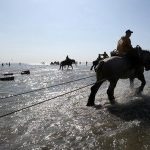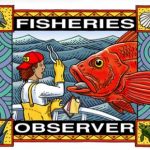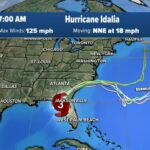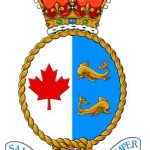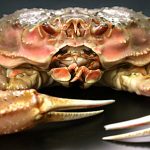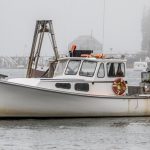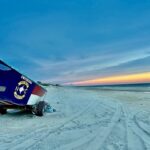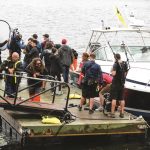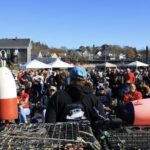NOAA Fisheries Cancels Three Northeast Research Surveys
 Due to the uncertainties created by the COVID-19 pandemic and the unique challenges those are creating for NOAA Fisheries, we are cancelling three research surveys off the Northeast United States. The cancelled surveys include those for sea scallop, Atlantic surfclam/ocean quahog, and an advanced technology survey investigating the ocean’s mesopelagic layer—the “twilight zone.”
Due to the uncertainties created by the COVID-19 pandemic and the unique challenges those are creating for NOAA Fisheries, we are cancelling three research surveys off the Northeast United States. The cancelled surveys include those for sea scallop, Atlantic surfclam/ocean quahog, and an advanced technology survey investigating the ocean’s mesopelagic layer—the “twilight zone.”
These are difficult decisions for the agency as we strive to balance our need to maintain core mission responsibilities with the realities and impacts of the current health crisis.
Since March, we have been rigorously analyzing various options for conducting cruises this year and are taking a survey-by-survey, risk-based approach. After much deliberation, we determined that there was no way to move forward with these surveys while effectively minimizing risk and meeting core survey objectives.
Resource Surveys on for 2021
While the two cancelled resource surveys are important fishery-independent sources of data for sea scallop, Atlantic surfclam, and ocean quahog, we will continue these typically annual surveys next year when this national health crisis improves. In the meantime, we will work with the two regional fishery management councils to mitigate the impacts from the loss of survey data this year. The sea scallop fishery is managed by the New England Fishery Management Council and Atlantic surfclam/ocean quahog fishery is managed by the Mid-Atlantic Fishery Management Council.
The third survey, advanced technology, is a partnership between NOAA and the Woods Hole Oceanographic Institution. The NOAA Ship Henry B. Bigelow supports a one-of-a-kind sampling unit used to investigate the ocean layer just below light penetration and we look forward to continuing this research in the future.
These cancellations follow similar decisions about ship-based work we had planned for April, May, and June.
Next Steps
NOAA Fisheries is continuing to assess the status of other surveys in the region and working through numerous survey scenarios relative to community pandemic safeguards and safe work practices, so that we maximize the science available for fisheries management in this challenging year.
Teri Frady, Research Communications


































